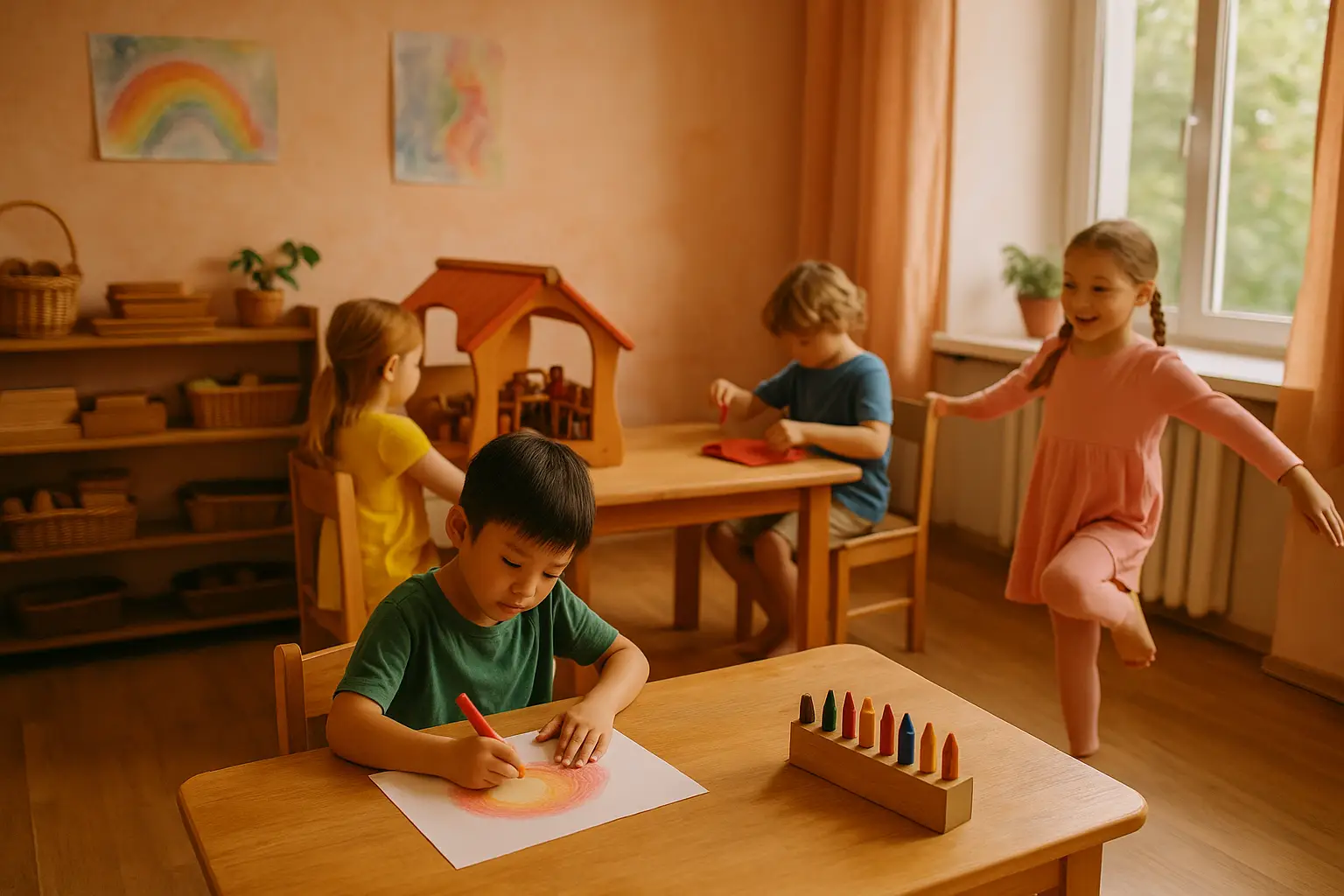
Balancing Academic Pressure with Creative Play: How Waldorf Education in Singapore Supports Healthy Childhoods
Introduction
In Singapore’s highly competitive educational landscape, children as young as three face mounting academic pressure that would challenge even older students. Singapore’s competitive educational landscape drives these pressures, as preschools create academically focused curricula to prepare children for the high standards and intense competition inherent in the system. This environment influences the variety of preschool curricula offered and highlights the importance of choosing the right approach for a child’s development. Parents witness toddlers carrying worksheets home, preschoolers attending multiple enrichment classes, and four-year-olds already stressed about Primary 1 readiness. This early academic intensity, while well-intentioned, raises critical questions about healthy child development and the long-term consequences of rushing childhood.
The challenge facing modern Singaporean families extends beyond academic achievement. While parents naturally want their children to succeed, many are discovering that excessive early academic pressure can hinder learning success and emotional well-being.
Research increasingly shows that children who experience overstimulation and premature academic demands often struggle with anxiety, reduced creativity, and diminished intrinsic motivation for lifelong learning. Quality preschool programmes that focus on holistic growth are essential for a child’s development—including cognitive, social, emotional, and behavioral skills—rather than focusing solely on academics.
Enter Waldorf education, an educational philosophy that offers a fundamentally different approach to balancing academic pressure with creative play. This century-old pedagogy, founded by Rudolf Steiner, prioritizes holistic development and protects childhood while still preparing students for academic success. In Singapore’s context, Waldorf education presents an alternative path that supports healthy childhoods without sacrificing educational excellence.
The Challenge of Academic Pressure in Singapore’s Educational Landscape
Singapore’s competitive educational landscape creates unprecedented early academic pressure that begins during the preschool years. Traditional academic-focused curricula emphasize intensive literacy and numeracy preparation, with a strong focus on early literacy and numeracy skills as key outcomes of preschool education, often starting formal instruction when children are barely three years old. This approach stems from Singapore’s competitive educational landscape, where parents feel compelled to provide every possible advantage for their children’s future success.
The reality for many Singaporean families involves preschoolers attending multiple enrichment classes, completing homework assignments, and facing assessments that determine their readiness for Primary 1 entry. Parents experience significant anxiety about school readiness, often measuring their child’s worth against academic milestones rather than developmental appropriateness. This pressure intensifies when children struggle to meet externally imposed timelines that may not align with a child’s natural psychological development.
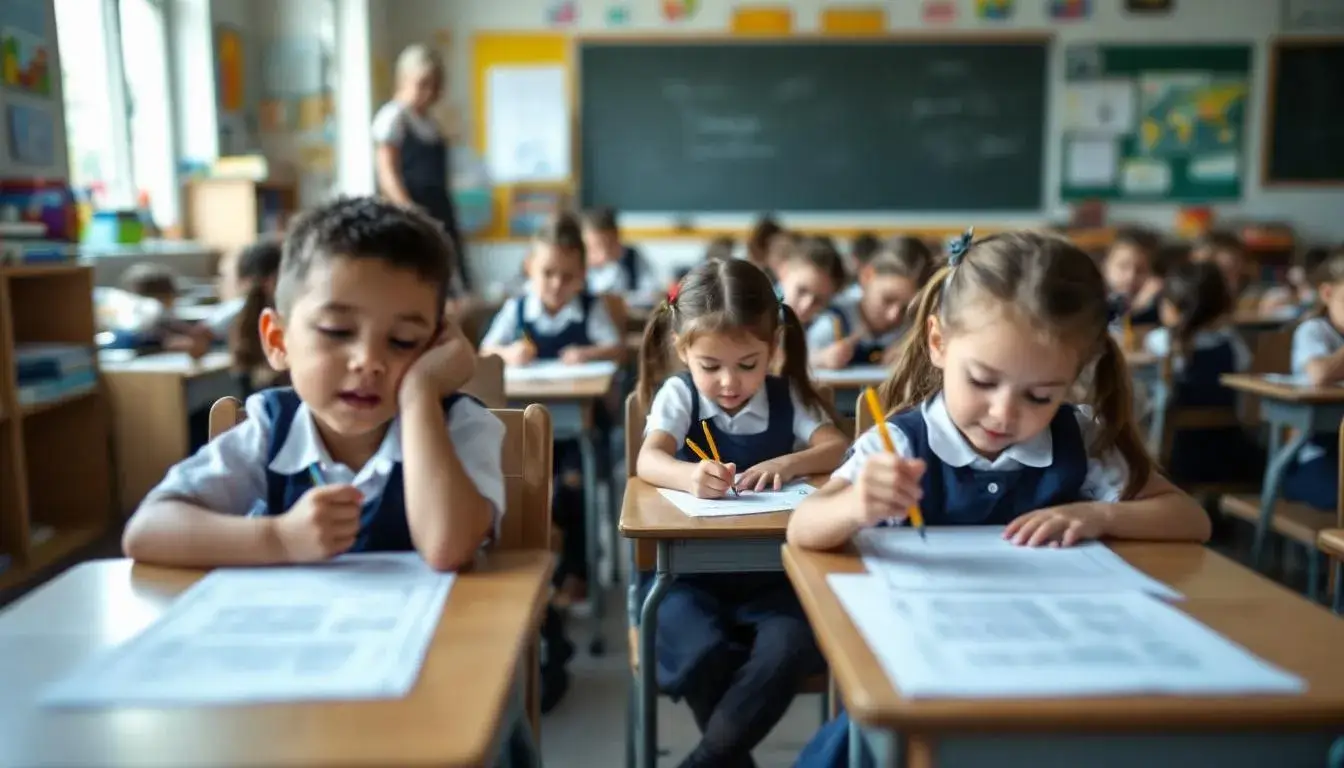
The excessive focus on testing and early academic achievement can diminish children’s natural curiosity and joy in learning. When young children’s development is rushed through formal academic instruction before they show natural readiness, the learning process becomes associated with stress rather than discovery. Children engage most deeply when they are allowed to encourage exploration through play and hands-on activities, which are often lost when play is deprioritized. Research indicates that early academic pressure may hinder long-term learning success and emotional well-being, creating anxious learners rather than confident, self-motivated students.
The consequences extend beyond individual children to family dynamics and community well-being. Parents report feeling trapped in an escalating cycle of academic competition, where childhood activities are evaluated primarily for their contribution to future scholastic achievement. This approach often overlooks the crucial developmental work that happens through imaginative play, creative expression, and unstructured exploration—activities that strengthen the cognitive and emotional foundations necessary for later academic excellence.
What is Waldorf Education: A Holistic Alternative in Early Childhood Education
Waldorf Steiner education represents a comprehensive educational philosophy that emphasizes whole child development through the integration of thinking (head), feeling (heart), and willing/doing (hands). Developed by Rudolf Steiner in 1919, this approach recognizes that children learn most effectively when academic instruction connects with their emotional and physical development, creating meaningful experiences that engage multiple learning styles.
The Waldorf Steiner approach protects childhood by prioritizing imagination, creativity, and experiential learning during the early years. Rather than rushing into formal academic instruction, Waldorf educators understand that young children’s development requires time for sensory exploration, imaginative play, and artistic expression. Waldorf education is specifically designed to nurture and support young children’s development by providing a learning environment that respects their natural growth and developmental needs. This foundation strengthens children’s capacity for later academic learning by developing attention, memory, and critical thinking through developmentally appropriate activities.
This century-old pedagogy is known for its unique teaching methods, which include teacher-led storytelling, rhythmic routines, and hands-on activities that foster creativity and independent thinking. One of the most distinctive aspects of Waldorf education is its developmental timing. Formal academic instruction begins only when children show natural readiness, typically around age 6-7, allowing younger children to develop through play-based learning that builds essential cognitive and emotional foundations. This approach recognizes different learning styles and honors each child’s unique developmental timeline rather than imposing standardized expectations.

The curriculum in Waldorf school settings integrates arts, crafts, storytelling, music, and movement throughout all subjects rather than treating them as separate enrichment activities. This integration creates rich, multisensory learning experiences that support different learning styles while making academic content more engaging and memorable. Children develop practical skills alongside academic knowledge, preparing them for real-world challenges that require both intellectual and sensible competencies.
While less common in Singapore compared to traditional approaches, Waldorf education is growing among parents seeking alternative educational philosophies that prioritize healthy child development. Many parents are now looking for the right preschool curriculum and preschool program to support their child’s holistic development, considering options like Waldorf alongside other early childhood education models. The Waldorf Steiner Education Association (Singapore), founded in 2003, has supported the development of early childhood programs, playgroups, and complete school options that adapt Steiner’s principles to Singapore’s multicultural context while maintaining the core commitment to holistic development.
Understanding Child Development Stages in Early Education
A deep understanding of child development stages is at the heart of quality early childhood education. Recognizing that each child grows and learns at their own pace allows educators and parents to create nurturing environments that support every aspect of a child’s development. This awareness is critical in the early years, when children are building the foundations for lifelong learning, social skills, and emotional well-being.
Educational philosophies like Waldorf education are grounded in the belief that children thrive when their natural developmental rhythms are respected. Rather than imposing a one-size-fits-all approach, Waldorf educators observe and respond to each child’s unique needs, interests, and abilities. This child-led learning approach ensures that the preschool curriculum is not only academically enriching but also developmentally appropriate, fostering holistic development across cognitive, emotional, and physical domains.
In practice, this means that early childhood education in a Waldorf setting is designed to nurture practical life skills alongside academic learning. Activities such as cooking, gardening, handcrafts, and collaborative play are woven into the daily routine, allowing children to develop independence, problem-solving abilities, and confidence through hands-on experiences. These practical skills are not just about preparing children for school—they are essential for building resilience, adaptability, and a love of learning that lasts a lifetime.
By honoring the stages of child development, Waldorf education creates a learning environment where children are encouraged to explore, imagine, and discover at their own pace. This approach supports holistic development, ensuring that children are not only academically prepared but also emotionally secure, socially competent, and ready to embrace future learning with enthusiasm. For parents seeking an educational philosophy that values the whole child, understanding and supporting these developmental stages is key to unlocking each child’s full potential. Documenting and supporting each child’s learning journey is essential, as it allows educators and parents to track growth, celebrate milestones, and provide guidance tailored to each child’s evolving needs.
How Waldorf Education Balances Academic Excellence with Creative Development
Academic success in Waldorf school environments is achieved through creative, experiential learning rather than repetitive drilling or premature formal instruction. This approach recognizes that children develop cognitive skills most effectively when learning connects with their imagination, emotions, and physical experience. Rather than separating academics from creativity, Waldorf educators understand that artistic expression and imaginative engagement enhance academic learning.
Research from various countries consistently shows that children who begin formal academics later often outperform early starters by age 10-12. This phenomenon occurs because delayed academic introduction allows children to develop strong foundations in attention, self-regulation, and intrinsic motivation. When formal education begins at the appropriate developmental stage, learning becomes joyful and naturally progressive, building confidence that supports long-term academic achievement.
The Waldorf approach makes learning meaningful and individually expressive through main lesson books that students create themselves. Instead of working from mass-produced textbooks, children write, illustrate, and design their learning materials, transforming academic content into personal artistic expression. This process deepens understanding while developing fine motor skills, aesthetic judgment, and personal connection to learning content. Recognizing a child’s learning style is central to supporting a child’s learning in Waldorf education, ensuring that every child’s unique way of engaging with material is honored and nurtured.
Arts integration across subjects enhances learning in mathematics, history, and science through creative methods that engage multiple intelligences. Mathematical concepts are explored through movement, music, and visual arts, making abstract ideas concrete and memorable. Historical periods come alive through storytelling, drama, and artistic projects that help children connect emotionally with different cultures and periods. Scientific concepts are discovered through observation, experimentation, and artistic documentation that develops both analytical and creative thinking. Project-based learning is also incorporated into the Waldorf curriculum, allowing children to collaborate on long-term projects that deepen understanding and foster teamwork.
This creative approach to academic learning supports children’s natural learning style while building the critical thinking skills essential for future success. When children experience learning as creative exploration rather than information consumption, they develop the curiosity, flexibility, and problem-solving abilities that characterize lifelong learners. The result is academic preparation that serves students well in traditional educational settings while maintaining their love of learning and creative capacity.
The Role of Creative Play in Waldorf Education
Imaginative play serves as the central learning modality in early childhood Waldorf education, supporting cognitive development through natural, developmentally appropriate activities. Imaginative play is essential for supporting the child’s learning process, as it nurtures curiosity, creativity, and the development of foundational skills in a holistic manner. This approach recognizes that young children learn most effectively through self-directed exploration and creative expression rather than adult-directed instruction. Free play periods allow children to process experiences, develop language skills, and build social competencies without the pressure of external evaluation. In Waldorf settings, mixed-age classrooms provide opportunities for children to learn from and with peers of different ages as they engage in play, fostering collaboration, independence, and hands-on engagement.
Natural materials and seasonal festivals create sensory-rich environments that support children’s connection to the natural world and cultural traditions. Waldorf early childhood programs emphasize wooden toys, silk fabrics, wool, clay, and other materials that invite open-ended exploration and imagination. These materials provide different textures, weights, and possibilities than plastic alternatives, supporting sensory development while encouraging creative problem-solving.
Storytelling and fairy tales play a crucial role in developing language skills, moral reasoning, and emotional intelligence. Rather than relying on screens or manufactured entertainment, Waldorf preschool teachers use oral storytelling to build children’s capacity for sustained attention, imagination, and language development. These stories often come from diverse cultural traditions, including Singapore’s rich multicultural heritage, helping children develop cultural awareness and empathy.
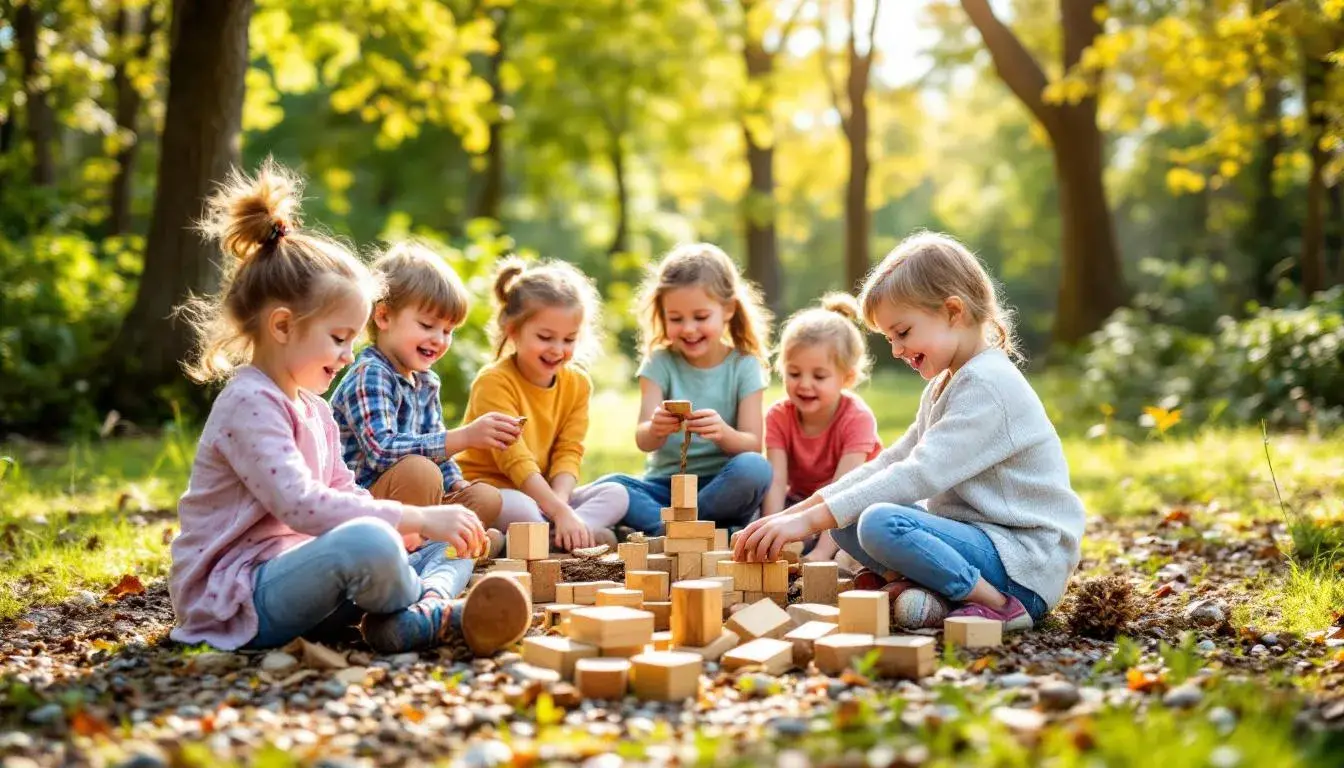
Rhythmic activities and eurythmy movement support physical coordination and spatial awareness while integrating learning across multiple domains. These movement-based activities help children develop body awareness, balance, and proprioception foundations that support later academic skills, including handwriting, mathematics, and sustained attention. The emphasis on rhythm in daily, weekly, and seasonal activities also provides predictability that promotes emotional regulation and security.
The Waldorf understanding of play recognizes it as serious developmental work rather than mere entertainment. Through imaginative play, children develop executive function skills, social competencies, and creative problem-solving abilities that serve as foundations for later academic learning. This approach allows children to explore interests and develop self-direction without adult-imposed structure, building the internal motivation and self-regulation that characterize successful students.
Supporting Emotional and Social Development
The non-competitive learning environment in Waldorf school settings fosters self-confidence based on personal progress rather than peer comparison. Traditional academic pressure often creates anxiety and external motivation, while Waldorf’s approach builds intrinsic motivation by celebrating each child’s unique contributions and developmental timeline. This environment allows children to take risks, make mistakes, and grow without fear of judgment or failure.
Mixed-age interactions in Waldorf classrooms build empathy, leadership skills, and a sense of community that extend far beyond academic achievement. Younger children benefit from observing and learning from older students, while older children develop responsibility and teaching skills by helping younger peers. These relationships create natural mentoring opportunities that develop social emotional skills and emotional intelligence, forming a strong foundation for each child’s education.
Collaborative learning projects emphasize cooperation over competition, developing strong social skills that serve children throughout their lives. Rather than focusing on individual achievement and ranking, Waldorf education encourages children to work together toward common goals. This approach builds communication skills, conflict resolution abilities, and the capacity for meaningful relationships that support both academic and personal success.
Seasonal celebrations and community festivals support cultural awareness and emotional well-being by connecting children to larger rhythms and traditions. These celebrations often incorporate Singapore’s diverse cultural heritage, helping children develop their identity and sense of belonging while appreciating different traditions. The emphasis on community and shared celebration builds emotional skills and cultural competency that prepare children for Singapore’s multicultural society.
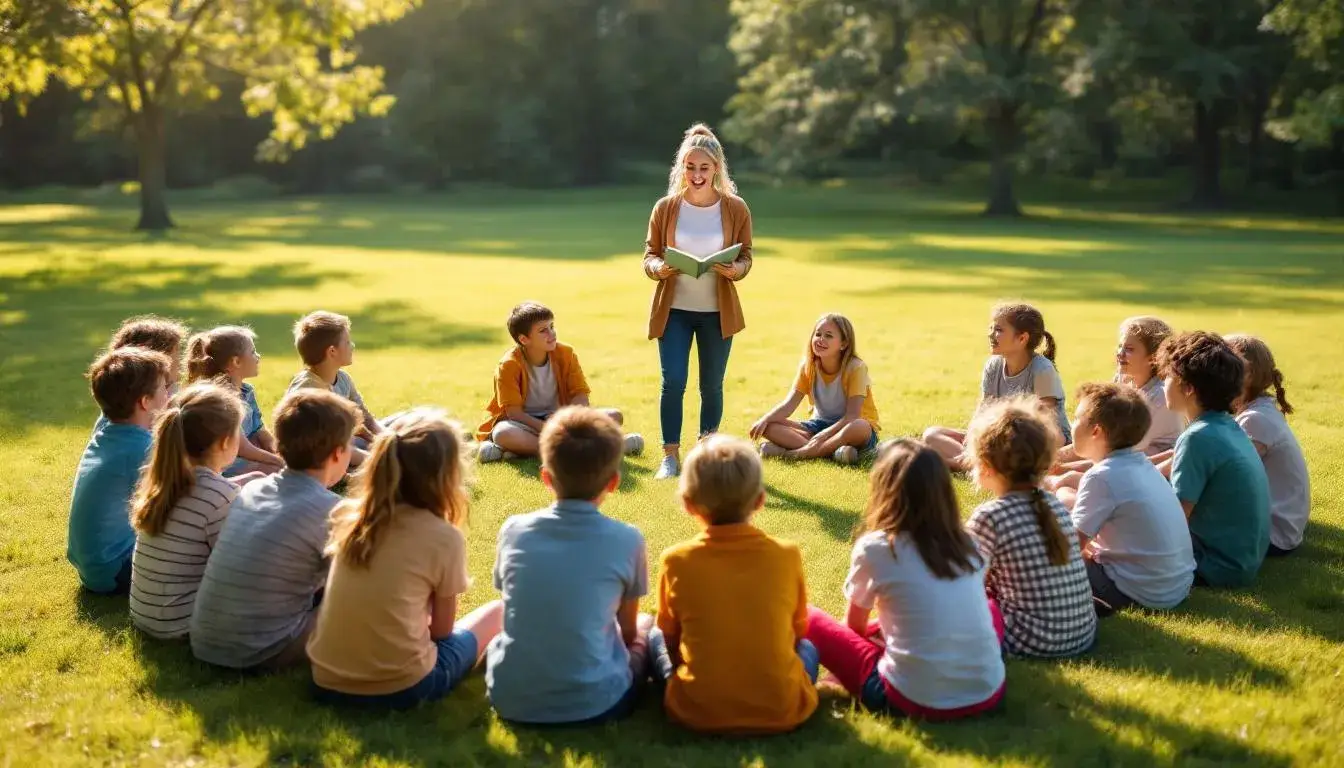
Teacher-student relationships maintained over multiple years create stability and a deep understanding that support both academic and emotional development. Unlike traditional systems where teachers change annually, Waldorf education often keeps the same class teacher for five to eight years. This continuity allows teachers to understand each child’s learning style, developmental needs, and individual challenges, providing personalized support that reduces stress and maximizes learning potential. Teacher qualifications and having trained teachers are essential in Waldorf schools, as they ensure educators are equipped to nurture the overall quality of a child’s education and development. By engaging families and fostering strong partnerships, Waldorf educators help create a supportive environment that enhances the early learning experience and supports the child’s education both at school and at home.
Developing Future-Ready and Practical Life Skills Through Waldorf Methods
The emphasis on creativity, critical thinking, collaboration, and adaptability in Waldorf education supports a holistic educational journey that prepares students for lifelong adaptability and success. Early childhood education in the Waldorf system lays a strong foundation for a child’s lifelong learning journey, fostering ongoing cognitive and social development that shapes how children approach challenges and interact with the world. This approach prepares students for 21st-century careers that increasingly value human-centered skills. As automation handles routine tasks, the economy increasingly rewards individuals who can think creatively, solve complex problems, and work effectively with others. Waldorf’s integration of arts, practical skills, and collaborative learning develops exactly these capacities.
Practical skills development through woodworking, gardening, and crafts builds problem-solving abilities and manual dexterity that support both academic and life skills. These hands-on learning experiences teach children to work with tools, follow complex processes, and create tangible results. The problem-solving skills developed through practical work transfer to academic subjects and future career challenges.
Artistic expression throughout the curriculum fosters innovative thinking and emotional intelligence, which are highly valued in careers that require creativity and human interaction., As artificial intelligence handles analytical tasks, the uniquely human capacities for creativity, empathy, and aesthetic judgment become increasingly valuable. Waldorf’s emphasis on artistic expression and emotional development prepares children for roles that require these distinctly human skills.
Self-directed learning and internal motivation support lifelong learning beyond standardized assessments and external validation. In rapidly changing job markets, the ability to learn continuously and adapt to new challenges becomes essential. Waldorf’s emphasis on intrinsic motivation and self-direction builds the learning skills necessary for ongoing professional development and career flexibility.
While international curriculum options, such as the International Baccalaureate, focus on global academic standards and multicultural exposure, Waldorf’s holistic development approach produces graduates who demonstrate confidence and adaptability for continuous skill growth in changing job markets. Rather than preparing students for specific jobs that may not exist in the future, Waldorf education develops fundamental human capacities that transfer across roles and industries. This approach prepares children for future success in ways that narrow academic training cannot match.
Waldorf Schools and Programs Available in Singapore
Singapore’sWaldorf education ecosystem includes several options for families interested in this educational approach. The Waldorf Steiner Education Association (Singapore), founded in 2003, serves as the central organization supporting Waldorf programs, teacher training, and community education throughout Singapore. WSEAS has facilitated the growth of early childhood programs and helped establish the foundation for more comprehensive educational options.
Straits Waldorf School represents Singapore’s first independent Waldorf Steiner school, offering Grades 1-8 education with authentic Waldorf methodology adapted to Singapore’s multicultural context. Located in eastern Singapore, this school provides a complete elementary education sequence that maintains Steiner’s developmental principles while incorporating local cultural elements and preparing students for transitions to secondary education.
Early childhood programs affiliated with WSEAS serve children from 18 months to 6 years through various formats, including parent-child classes, preschool programs, and kindergarten options. In Singapore, a preschool program typically refers to a structured early childhood education setting for children before they enter primary school. At the same time, preschool education encompasses a broader range of philosophies and models, such as play-based, Montessori, Reggio Emilia, Waldorf, and others, each with distinct approaches and curricula. RainTree Early Childhood Programs and other WSEAS-affiliated centers provide Waldorf-inspired early childhood education that emphasizes rhythm, storytelling, handwork, movement, and outdoor play. These programs offer entry points for families wanting to experience Waldorf principles before committing to complete school programs.
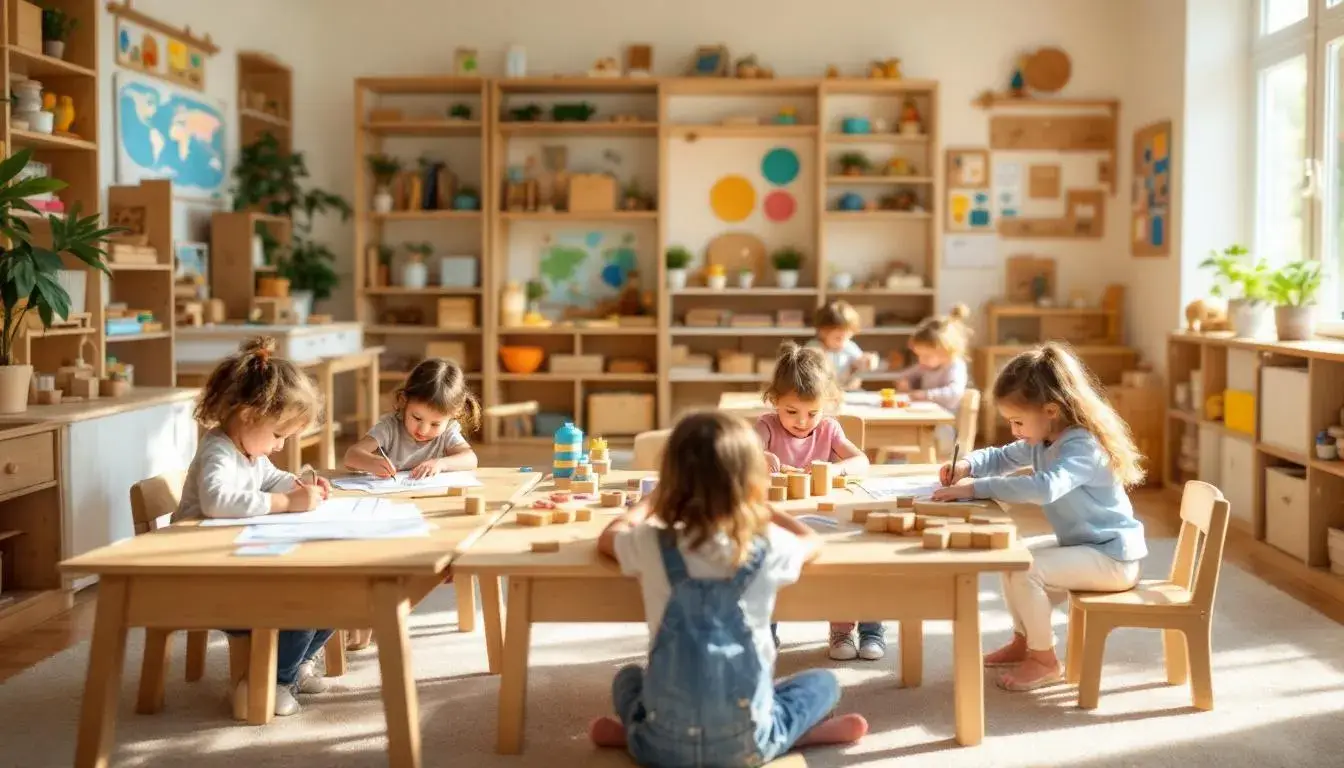
Weekend workshops and summer camps introduce Waldorf methods to interested families who may be enrolled in traditional schools but want to supplement their children’s education with creative, play-based learning experiences. These programs allow families to experience Waldorf principles without fully transitioning from conventional educational settings.
Some programs offer hybrid approaches that combine Waldorf principles with academic preparation specifically designed for Singapore’s Primary 1 requirements. These bridging programs recognize that some families want Waldorf’s developmental benefits while ensuring their children meet local academic expectations. This approach allows families to benefit from Waldorf’s holistic development while preparing for traditional school transitions.
Addressing Common Parental Concerns About Academic Readiness
Research consistently demonstrates that Waldorf graduates successfully transition to traditional academic environments and often outperform peers who received earlier formal instruction. Studies from various countries show that children who begin formal academics later develop stronger foundations in critical thinking, creativity, and self-motivation that serve them well in traditional school settings.
The apparent delay in formal academics strengthens foundational learning and academic confidence by ensuring children are developmentally ready for abstract thinking and formal instruction. When children begin reading, writing, and mathematics at ages 6-7 rather than 3-4, they typically progress more rapidly and with less stress because their cognitive and motor development supports these complex skills.
Specific strategies help bridge Waldorf early childhood education with Singapore’s Primary 1 curriculum expectations. These include gradual introduction of formal academic skills during the transition year, supplementary preparation programs, and communication with receiving schools about children’s learning experiences and capabilities. Many Waldorf programs offer transition support to help families navigate this crucial educational shift. Importantly, Waldorf education is designed to support a child’s lifelong learning journey, ensuring that the skills and values developed in early childhood lay the foundation for continuous growth and success beyond immediate academic readiness.
Case studies from Singapore families demonstrate how Waldorf-educated children excel in local primary and secondary schools while maintaining their creativity, confidence, and love of learning. These examples highlight the importance of tracking and supporting each child’s learning journey through different educational transitions, ensuring that their progress and needs are recognized and nurtured. These children often become leaders in their new schools, bringing collaborative skills, creative thinking, and self-motivation that distinguish them from peers who experienced early academic pressure.
Parent testimonials from Singapore families choosing Waldorf education consistently report benefits that extend beyond academic preparation to include emotional stability, creative capacity, and social competence. Families frequently note that their children maintain curiosity, enthusiasm for learning, and emotional resilience that serve them well in any educational environment.
Implementing Waldorf Principles at Home
Creating rhythmic daily routines that balance active and quiet times supports children’s natural need for both stimulation and rest while reducing stress and anxiety. Successful home rhythms might include morning outdoor play, creative activities, practical work like cooking or cleaning, quiet time for rest or stories, and evening rituals that provide security and predictability.
Choosing natural toys and materials that encourage imaginative play rather than electronic entertainment supports children’s cognitive development and creativity. Simple wooden blocks, art materials, dress-up clothes, and natural objects provide endless possibilities for creative play while developing problem-solving skills and imagination. These materials invite children to create their entertainment rather than passively consuming manufactured content.
Incorporating storytelling, singing, and artistic activities into family time builds language skills, cultural connection, and emotional bonds while providing alternatives to screen-based entertainment. Regular family storytelling, music-making, and creative projects create shared experiences that strengthen relationships while supporting children’s development.
Limiting screen time and academic pressure in favor of outdoor exploration and creative pursuits allows children to develop at their natural pace while building physical health and environmental connection. Regular nature experiences, whether in parks, gardens, or simply outdoor play spaces, provide sensory stimulation and physical activity that support healthy development.
Supporting your child’s natural developmental timeline without forcing early academic achievement requires understanding that children develop different skills at different rates and that rushing development often creates problems rather than benefits. It is essential to respect your child’s natural psychological development at home, allowing their growth and learning to unfold in alignment with their individual needs and readiness. Parents can observe their children’s interests and readiness cues while providing rich experiences that support natural learning progression.
The transformation in my daughter has been remarkable. She’s more confident, creative, and genuinely loves learning. The Waldorf Steiner approach has given her tools for life, not just for tests.
We chose Straits Waldorf because we wanted our son to develop as a whole person. The balance of academics, fine and practical arts, and overall creative development is awesome. My child communicates like an adult at this young age while being practical and understanding at the same time. Thanks Straits Waldorf team!
The Waldorf teachers at Straits Waldorf truly understand child development. They meet each child where they are and help them grow at their own pace.
After years in traditional schools, the Waldorf Steiner approach has rekindled my child’s natural curiosity and love of learning.
Discover Waldorf Steiner Education for Your Child
If you’re considering educational alternatives for your child, Waldorf Steiner education offers a proven approach that develops capable, creative, and confident young people. At Straits Waldorf School, we’re committed to providing authentic Waldorf Steiner education that honors your child’s natural development while preparing them for future success.
Waldorf Steiner education isn’t just about academic achievement – it’s about nurturing human beings who can think clearly, feel deeply, and act with purpose. In today’s rapidly changing world, these qualities are more valuable than ever.
Ready to learn more about how Waldorf Steiner education can benefit your child? We invite you to visit our campus and experience our learning community firsthand.
Book a School Tour to discover how Straits Waldorf School can provide your child with an education that nurtures their head, heart, and hands.
Why is academic pressure such a concern in Singapore’s early education system?
Because of Singapore’s highly competitive academic culture, children as young as three are exposed to worksheets, enrichment classes, and assessments designed to prepare them for Primary 1. This “school readiness” race often prioritizes test results over healthy development, leading to stress, anxiety, and a loss of natural curiosity in young learners.
How does Waldorf education differ from traditional preschool approaches in Singapore?
Waldorf schools delay formal academics until children are developmentally ready (around ages 6–7). Instead of drilling early literacy and numeracy, Waldorf emphasizes play, imagination, movement, arts, and practical skills—helping children build emotional security, creativity, and intrinsic motivation that fuel stronger academic growth later.
Will children in Waldorf programs struggle to transition to mainstream schools?
No. Research shows that children who begin formal academics later often catch up quickly and may outperform early starters by ages 10–12. Waldorf programs in Singapore also offer bridging strategies to align with Primary 1 expectations, ensuring a smooth transition without sacrificing childhood well-being.
What role does creative play have in child development, according to Waldorf education?
Play is seen as serious developmental work. Through imaginative, hands-on play with natural materials, storytelling, and movement, children build problem-solving skills, executive function, emotional resilience, and social competence. These are the foundations for confident and adaptable learning in later years.
How does Waldorf prepare children for the future compared to academically focused models?
Instead of just training for exams, Waldorf cultivates creativity, adaptability, collaboration, and critical thinking—skills that are increasingly valuable in a future shaped by automation and global change. Waldorf graduates leave with both academic readiness and the human-centered capacities needed for long-term success.
Join
Book An Appointment

